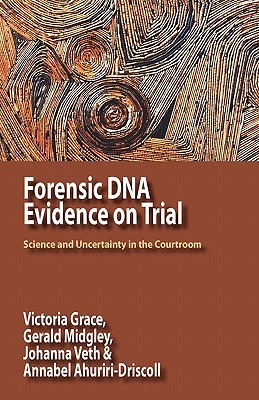
- We will send in 10–14 business days.
- Author: Victoria Grace
- Publisher: Isce Publishing
- ISBN-10: 0984216545
- ISBN-13: 9780984216543
- Format: 19.8 x 12.9 x 0.5 cm, softcover
- Language: English
- SAVE -10% with code: EXTRA
Reviews
Description
When juries hear forensic DNA evidence presented in court, what does it mean to them? And does it mean the same for police officers, lawyers and forensic scientists? If jurors, scientists and others have fundamentally different understandings of DNA evidence, what are the implications for criminal justice? This original book asks and answers these challenging questions. Drawing upon their own ground-breaking research, the authors demonstrate that major assumptions about science influence how forensic DNA evidence is interpreted. Forensic scientists appreciate that there is always an element of uncertainty involved in the production of scientific evidence, but this comes as a rude awakening to most jurors who have their faith in the certainty of science undermined. As a result, jurors can become confused and make errors-sometimes overrating and sometimes underrating the value of DNA evidence when deciding on guilt or innocence. This clearly has significance for the role of such evidence in criminal justice. While some people working in the criminal justice system would prefer scientists to hide uncertainty, the authors of this book mount a robust case for both juries and lawyers becoming better informed about the inevitable uncertainties of science.
EXTRA 10 % discount with code: EXTRA
The promotion ends in 19d.05:53:02
The discount code is valid when purchasing from 10 €. Discounts do not stack.
- Author: Victoria Grace
- Publisher: Isce Publishing
- ISBN-10: 0984216545
- ISBN-13: 9780984216543
- Format: 19.8 x 12.9 x 0.5 cm, softcover
- Language: English English
When juries hear forensic DNA evidence presented in court, what does it mean to them? And does it mean the same for police officers, lawyers and forensic scientists? If jurors, scientists and others have fundamentally different understandings of DNA evidence, what are the implications for criminal justice? This original book asks and answers these challenging questions. Drawing upon their own ground-breaking research, the authors demonstrate that major assumptions about science influence how forensic DNA evidence is interpreted. Forensic scientists appreciate that there is always an element of uncertainty involved in the production of scientific evidence, but this comes as a rude awakening to most jurors who have their faith in the certainty of science undermined. As a result, jurors can become confused and make errors-sometimes overrating and sometimes underrating the value of DNA evidence when deciding on guilt or innocence. This clearly has significance for the role of such evidence in criminal justice. While some people working in the criminal justice system would prefer scientists to hide uncertainty, the authors of this book mount a robust case for both juries and lawyers becoming better informed about the inevitable uncertainties of science.


Reviews